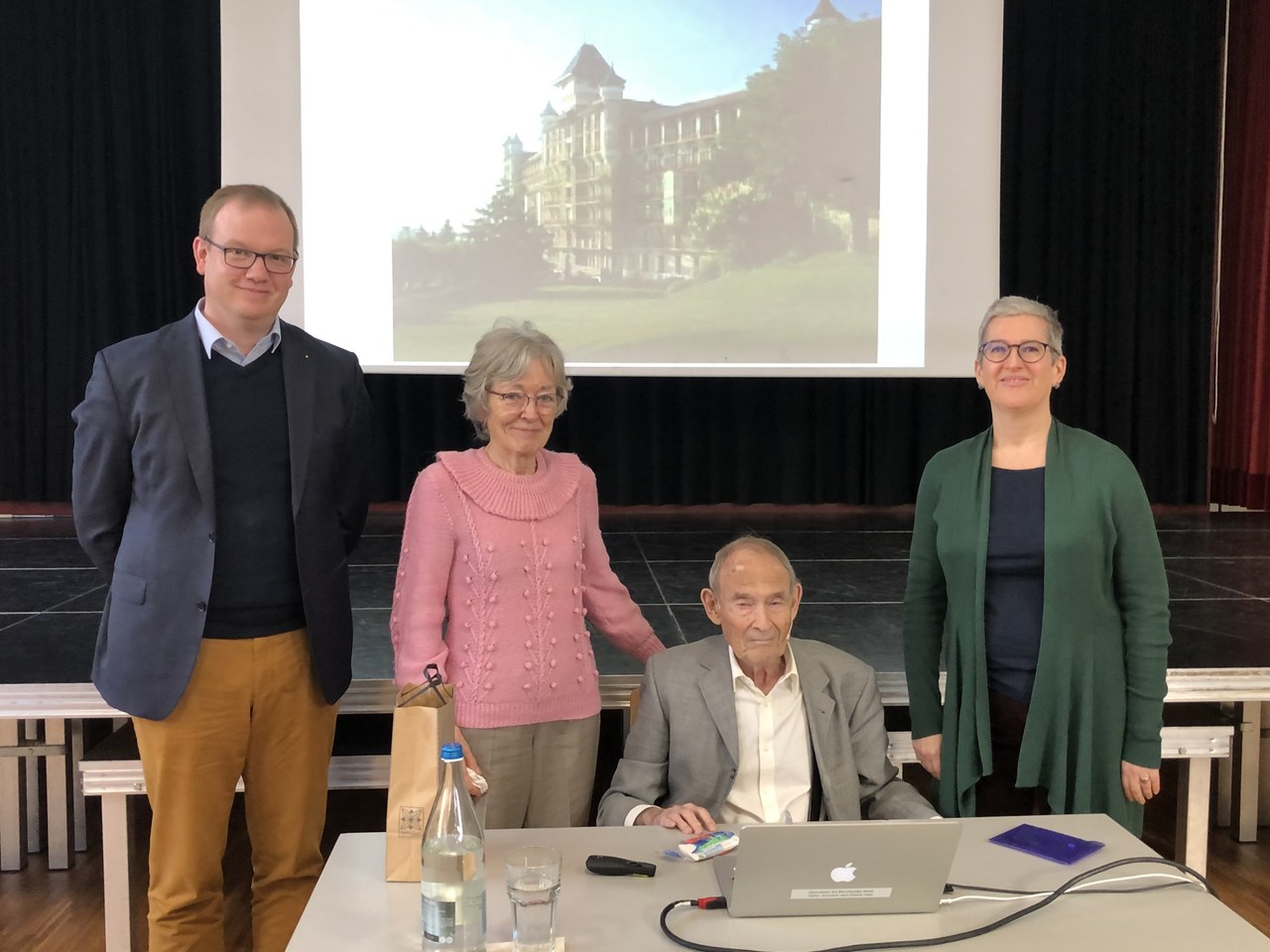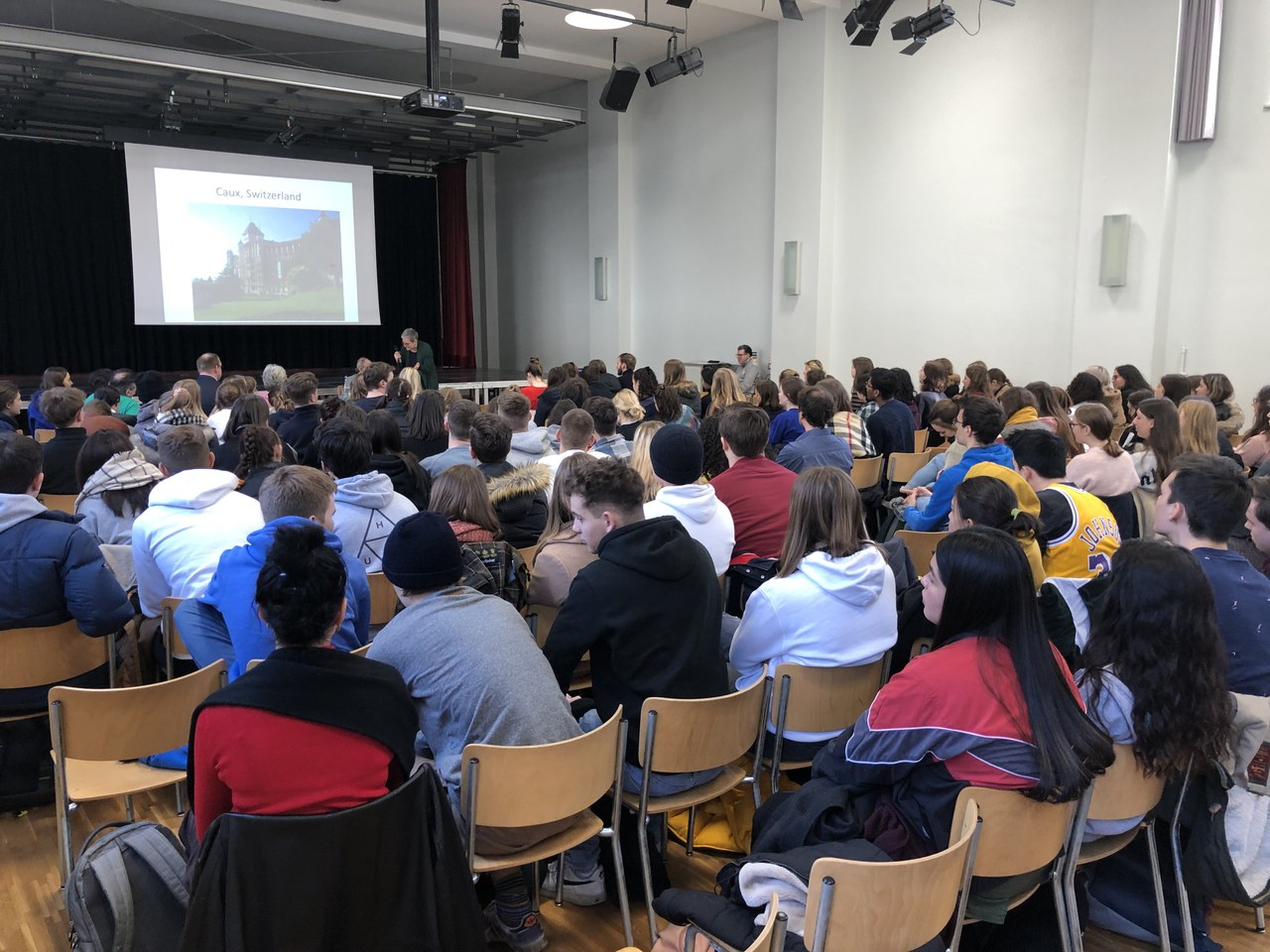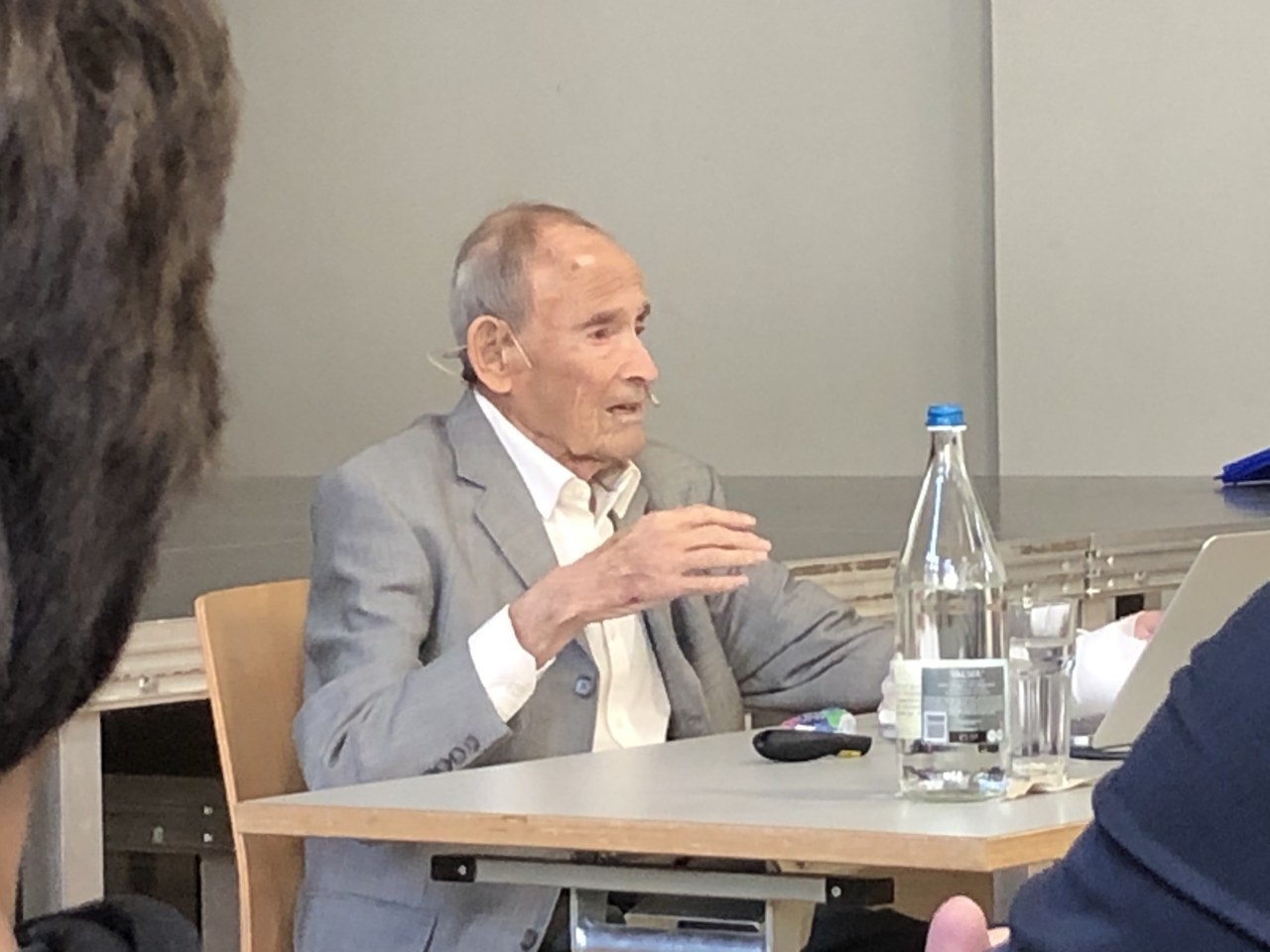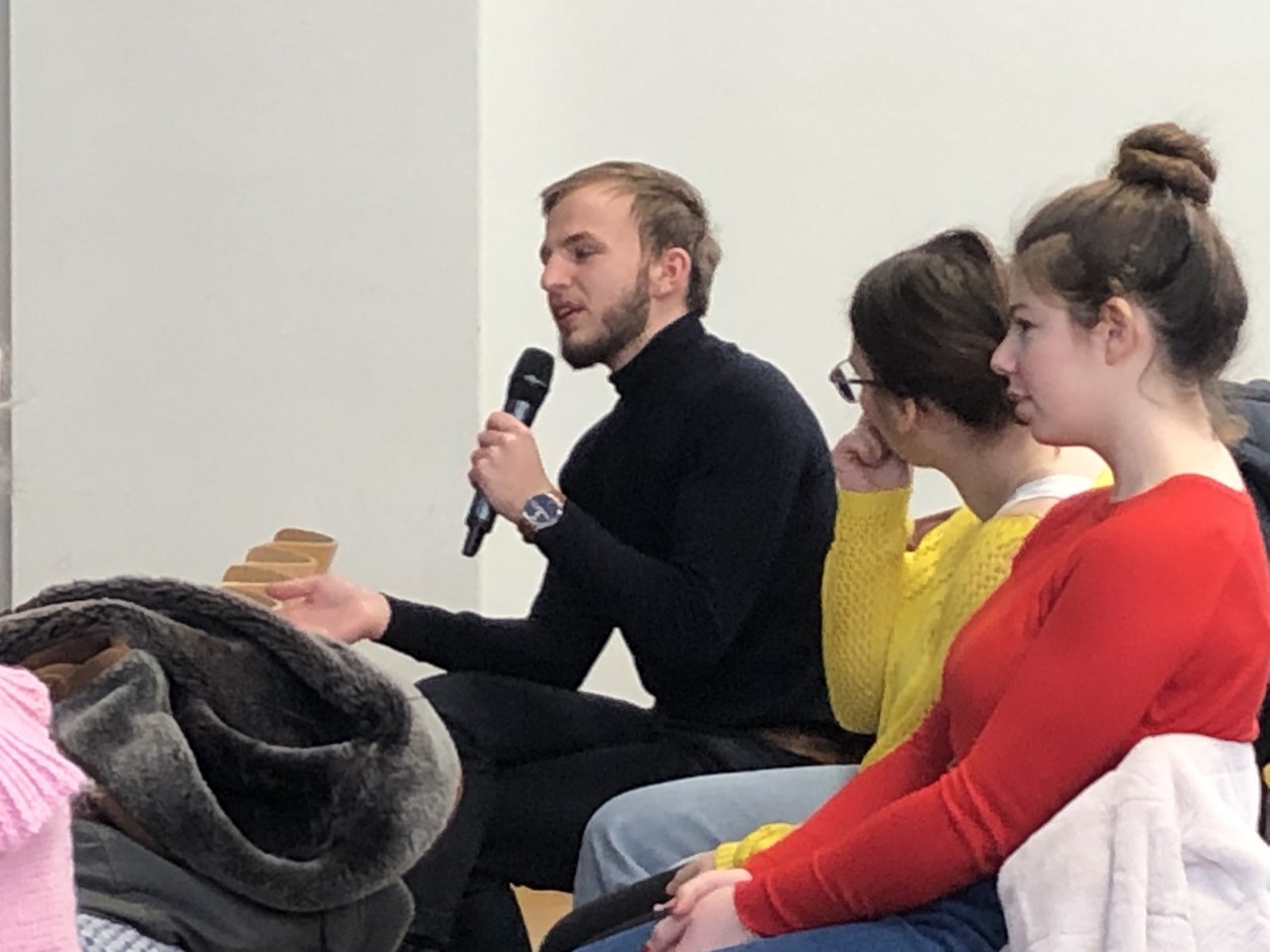Holocaust Remembrance Day 2020
On Monday, January 21, 2020, the GM celebrated the European Holocaust Remembrance Day with the visit of Holocaust survivor Ladislaus Löb who is actually living in Zurich. In 1944 at the age of eleven, Mr. Löb was deported to the ghetto of his native town of Cluj in Transylvania, Romania (1940-45 Kolozsvár, Hungary). While most of his family was murdered in Auschwitz, he escaped with his father from the ghetto and together they undertook a long and strenuous journey that eventually lead them to Switzerland as members of the “Kasztner Group”, along with almost 1,700 Hungarian Jews. But before this liberating moment, they both had to spend five months in the Bergen-Belsen concentration camp.
In a highly impressive way, Mr. Loeb gave his audience – students of the 5th classes of the GM – an accurate understanding of his odyssey through most thrilling anecdotes: starting with his detention and the deportation in the camp in Budapest at the end of June 1944, all through the 9-day trip in crowded cattle trains stuck with sick people, births and deaths on board until the arrival in Bergen-Belsen on July 9, 1944. Mr. Loeb’s highly differentiated view of people and events was admirable, e.g. the cruelty of the Hungarian gendarmes, which wasn’t in any way second to that of the SS officers, or the supposedly consistent organization and cohesion of the SS troops, who in reality all cared for their own interests, were involved in power struggles and highly corruptible.
Mr. Loeb's excruciating memories of the five months behind barbed wire and watchtowers in Bergen-Belsen particularly got under the skin of those present: the ongoing hunger, the damp and smelly barracks, the aggressions by fellow prisoners, the unknown fate of relatives and friends. Mr. Loeb also made a strong argument for Rezsö Kasztner, leader of an illegal Jewish rescue committee that negotiated with Adolf Eichmann the ransoming of Jewish prisoners. For this intervention, Kasztner later paid with his life when he was shot dead by a young right-wing radical in Israel in March 1957.
The history teachers at GM prepared their students beforehand for this meeting. The student body as well as the staff members highly appreciate these encounters with survivors of the Holocaust horror and consider them very enriching.




